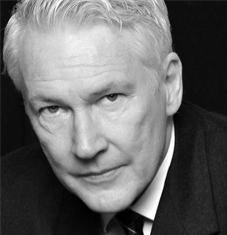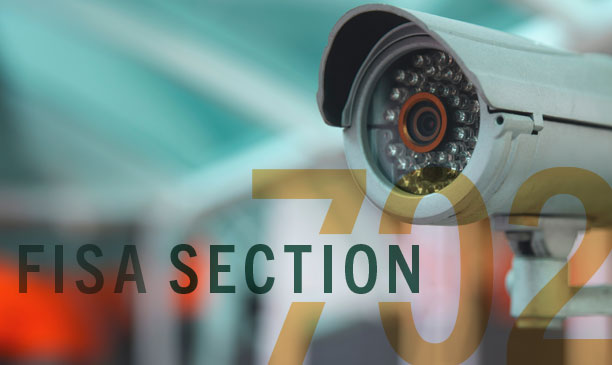Self-Pardons: The President Can't Pardon Himself, So Why Do People Think He Can?
There appears to be some confusion surrounding the question of whether a president can pardon himself. There are many judgments to be drawn from the familiar forms of legal argument—history, text, structure, prudence, doctrine and ethos—all of which cohere around the conclusion that such a pardon is not constitutionally permissible, a conclusion also reached by the Office of Legal Counsel (OLC). These arguments are discussed in more detail in “Impeachment: A Handbook,” by Charles L. Black, Jr. and Philip Bobbitt, forthcoming from Yale Press in September.
There appears to be some confusion surrounding the question of whether a president can pardon himself. There are many judgments to be drawn from the familiar forms of legal argument—history, text, structure, prudence, doctrine and ethos—all of which cohere around the conclusion that such a pardon is not constitutionally permissible, a conclusion also reached by the Office of Legal Counsel (OLC). These arguments are discussed in more detail in “Impeachment: A Handbook,” by Charles L. Black, Jr. and Philip Bobbitt, forthcoming from Yale Press in September. Here I simply want to speculate as to why thoughtful lawyers might have concluded otherwise despite the fact that the conventional determinants of constitutionality are so consistent (and so consistent with the public’s expectations). There seem to be two reasons for this confusion.
I
The first is that the text providing for the pardon power is unqualified. As Judge Richard Posner put it, “It has generally been inferred from the breadth of the constitutional language that the president can indeed pardon himself.”
Article II, Section 2 provides that the “President shall…have Power to grant Reprieves and Pardons for Offenses against the United States.” On its face, this provision is unlimited; that is, unlike other enumerated powers provided in the Constitution—Congress shall have power “to provide for calling forth the Militia [in order] to execute the laws of the Union, suppress Insurrections and repel Invasions,” or in order “to promote the Progress of Science and useful Arts, [Congress may secure] for limited Times to Authors and Inventors the exclusive right to their respective writings and Discoveries”—the power granted is not limited to a particular purpose. It is, as Chief Justice John Marshall observed of the commerce power in McCulloch v. Maryland, a “plenary enumerated power.” “Plenary” power is simply the authority to accomplish any purpose that is not prohibited. By contrast, the power to tax is not plenary but limited in its purposes: “The Congress shall have Power to lay and collect Taxes, Duties, Imposts and Excises [in order] to pay the Debts and provide for the common Defense and general welfare of the United States.”
That does not mean, however, that a power thus unqualified as to its purposes is utterly unrestricted because there are other provisions of the constitutional text with which it must be reconciled. For example, the commerce power granted by Article I, Section 8 is unqualified on its face—“The Congress shall have Power … To Regulate Commerce with foreign Nations, and among the several States, and with the Indian tribes”—but is restricted by, among other provisions, the prohibitions of Article I, Section 9 that “No preference shall be given by any Regulation of Commerce or Revenue to the Ports of one State over those of another.”
A self-pardon by the president is incompatible with the provision of Article II, Section 3 that “he shall take Care that the Laws be faithfully executed” and the provision of Article II, Section 1 that “executive power shall be vested in a President.” (Professors Jed Shugarman and Ethan Leib have presented a different argument regarding self-pardons and the Take Care Clause, available here.)
When a president pardons another person for a federal crime, he is in fact executing the law—the law of the Constitution’s pardon power—despite the fact that he is relieving that person from the execution of the federal penal code. But when the president pardons himself, he assumes a power that is incompatible with, rather than a supplement to, the application of the federal criminal law. That is because as chief law enforcement officer, he could put himself beyond the applicable law simply by withholding his consent to his prosecution by the department he controls while he is president—and then assure himself that he could not be convicted after his term ended—or after impeachment—because he could pardon himself prospectively. Thus the law could not, in the face of such a pardon, be “faithfully” executed, because the pardon itself might be an expression of chicanery and subterfuge—in short, of bad faith. In such circumstances, the pardon is granted not to temper the criminal law or to reconcile political dissidents, as envisioned by the Framers—see, for example, Federalist 74 and remarks by Edmund Randolph at the Philadelphia Convention—but to execute an intrigue by which the law is thwarted. The self-pardon might even then amount to an element of the crime for which he is pardoned.
No other person is in the same position to thwart the faithful execution of the laws, because no other person could both withhold prosecution while committing crimes and then render prosecution thereafter pointless. It is hard to see how the federal criminal laws—which contemplate investigation as well as prosecution and conviction--- could be faithfully executed if, with regard to one person, they are effectively a nullity.
A president could pardon himself prospectively and not bother with ordering the Justice Department not to investigate or prosecute him, but as we have recently seen, the scope of such a pardon would be uncertain as the investigation produced new potential offenses. Silencing the investigation is crucial to the effectiveness of the prospective self-pardon. Nor would merely permitting an investigation to go forward re-invigorate the self-pardon because it can never be known what investigations the executive has declined to pursue.
Of course, a president might genuinely believe that in his particular factual circumstances a self-pardon is warranted, owing to his conviction that he is wholly innocent or that his subsequent prosecution after leaving office would damage the institution of the presidency or the prestige of the country. But those conclusions are assessments of fact and intention, not matters of constitutional doctrine. Once out of the White House, the former president should have ample opportunity to establish his innocence through the customary operations of due process.
To see this more clearly, imagine that a president uses his discretionary power over investigation and prosecution of federal crimes to cover up a crime of his own. There is little legal doubt that, even though he might thwart investigation of his crimes while he is in office, he could be prosecuted after leaving office, including for attempting to cover up those crimes through his official acts. (Nor is there any doubt, by the way, that Congress could provide statutory authority to toll the applicable statute of limitations until he left office; these reasons for these conclusions are elaborated in Black and Bobbitt, Impeachment: A Handbook.) If, however, the president could pardon his own acts, then when coupled with the power to withhold investigation and prosecution, he could effectively render impossible the next president’s power to faithfully execute the law. (Yes, I am aware that one might reply that faithful execution of the “laws” might be construed simply to include a global exception from their application even to the most duplicitous behavior by the president. But this reasoning strikes me quite forcibly as draining any meaning from the term “faithfully”—to say nothing of creating a provision so wholly out of step with the general structure of balanced and checking powers as to require a very explicit textual exception rather than a theatrical inference from the absence of text.)
This hypothetical may not capture the true facts of the Trump presidency. For those, we await the outcome of the Mueller investigation. But to permit a sitting president to pardon himself—to extinguish a prosecution after he has left office—when he can abort this or future investigations through his executive powers removes the possibility of establishing the very innocence on which President Trump insists.
This reading is confirmed by the language of the pardon power itself, which explicitly states that the power does not apply to impeachments. Some scholars have concluded that the language quoted above—“Power to grant Reprieves and Offenses against the United States, except in Cases of Impeachment”—suggests that the ultimate remedy for behavior that violates federal criminal law is impeachment rather than criminal prosecution. But this reading depends upon the grounds for impeachment being limited to “Offenses against the United States”—that is, crimes—when there was ample discussion by the Framers that this is not the case.
If a president could pardon his own impeachment, he would render the impeachment clause vacuous. Similarly, if a president could grant a pardon to himself, he might unlawfully refuse to leave office if convicted by the Senate. Here it is useful to recall James Wilson’s reminder at the Constitutional Convention: “if [the President] be himself a party to the guilt he can be impeached and prosecuted.” The two processes—impeachment and subsequent prosecution—are linked. Some scholars have taken the phrase “and prosecuted” to mean a prosecution before the Senate, but even this reading does not preclude subsequent criminal prosecution. Rather, it invites it, given that a sitting president cannot be indicted.
Nor is this the only restriction on the pardon power. It must also be reconciled with the Bribery Clause of Article II, Section 4: A pardon cannot lawfully be granted as the result of a bribe. At least one prominent law professor, Akhil Amar, has trenchantly observed that a self-pardon is like giving oneself a bribe to commit an official act where the bribe and the act are the same. Not only is the pardon itself grounds for impeachment and prosecution; it is futile. That is, because the pardon was obtained by a bribe, it is without effect. Similarly, the Double Jeopardy Clause, which on its face is unqualified, does not apply when an acquittal at the initial trial is obtained through bribery. See Harry Aleman v. Judges of the Criminal Division, Circuit Court of Cook County, Illinois et al, 138 F. 2d 302 (1998). Additionally, the pardon of enemy leaders for war crimes in some circumstances could be incompatible with the Treason Clause.
II
The second source of confusion lies in the common belief that constitutional doctrine is composed solely of judicial precedent. In Ex parte Garland (1866) the U.S. Supreme Court upheld a pardon by President Andrew Johnson of a former Confederate senator, restoring the former senator’s civil rights. The court’s expansive language is often quoted by those who conclude that the president can pardon himself: The pardon power, “is unlimited…. [and] extends to every offence known to the law, and may be exercised at any time after its commission, either before legal proceedings are taken or during their pendency, or after conviction and judgment.” This characterization was confirmed in 1974 in Schick v. Reed: “The plain purpose of the broad power conferred by [Article II, Section 2] was to allow plenary authority in the President.”
Supreme Court precedents are indeed authoritative statement of doctrine. Like all precedents, however, they are to be applied based on the similarity of the factual and legal context of the original holding to that of the prospective holding. Mere quotations, lifted out of their contexts, do not determine this. More importantly, judicial precedents are not the only source of constitutional doctrine. There are also precedents—more pertinently with respect to impeachment, which is not reviewable by the courts—that arise from the actions of the other branches. Specifically, Gerald Ford’s pardon of Richard Nixon is far more pertinent to the question of a self-pardon than the facts and reasoning of Garland or Schick. Why would President Ford have risked his reelection and his standing with the public—his approval ratings dropped more than 30 points after his pardon of Nixon—if his predecessor could simply have pardoned himself before resigning?
The entire debate about a self-pardon must be bewildering to those not following the issue closely; the fact that law professors can’t agree suggests there is no sound answer. The treatment of self-pardons in the press (“Legal Experts Disagree”) has not helped matters. As Justice Oliver Wendell Holmes remarked, “When the ignorant are taught to doubt, they do not know what they safely may believe.” There is a good deal less warrant for doubt about the question of pardons with regard to one singularly powerful official who, if malignant, is capable of vast criminal mischief, than the recent presentation of the issue would suggest.





